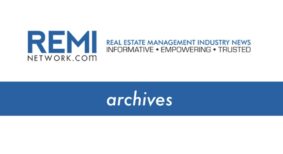The 2014-15 school year begins next week. According to career counselor Mark Franklin, there are numerous opportunities for students and graduates interested in the green building and sustainability industry.
Here, Franklin discusses how to effectively break into the evolving field, touching on job prospects, different career opportunities within the industry, post-secondary programs and how to pursue mentorships.
What are some career options for those interested in green building and sustainability?
Anyone interested in green building and sustainability should learn about Leadership in Energy and Environmental Design (LEED) and consider pursuing LEED professional designations through the Canada Green Building Council (CaGBC). Job-search engines like WowJobs can also highlight jobs in the green building field. Sample job titles include: eco-construction worker; LEED coordinator; energy efficiency specialist; sustainability advisor; construction and building inspector; and coordinator of sustainability initiatives.
What are the prospects for these types of careers?
The outlook for many jobs in this field is quite positive, with emphasis among developers, regulators, government and the public on energy conservation and sustainability. The U.S. Department of Labor career site O*NET flags many jobs with the “Bright Outlook” label, including: energy auditors; construction manager; civil engineer; and construction carpenter. O*NET uses the “Rapid Growth” flag for some industry-related jobs, including solar photovoltaic installers.
What kinds of university/college programs should students look into and what prerequisites do they tend to require?
In addition to professional university programs such as civil and environmental engineering, architecture and college programs in engineering technology, architectural technology, construction management, an individual may get practical training and certification through the CaGBC.
Are there any mentorship programs or organizations that students can reach out to?
Internships are valuable learning opportunities. Work-study positions such as student assistant – campus sustainability are available on campuses across Canada, which can also provide learning opportunities. Additionally, anyone can explore career possibilities by requesting a ‘field research’ interview. This is not a job interview and it is inappropriate to ask for a job or to hand over your resume, unlessrequested to do so. To conduct a field research interview:
- Identify the areas, companies, organizations or training opportunities you want to explore.
- Try to find an appropriate contact person within your network, or, you can simply call an organization and try to identify a suitable contact through reception.
- Be courteous when requesting the interview. For example, “My name is ____ and I was given your name by ______. I’m interested in exploring the area of _______ and wondered if I could ask for your advice, perhaps over a coffee, for 15 to 20 minutes.” If they can’t meet in person, they may be willing to talk to you over the phone. And if not, they still may be helpful and offer you the name of someone else to contact.
- Schedule a meeting at the interviewee’s convenience.
- Be prepared and be professional. See below for sample questions.
- Take notes during the interview.
- Thank interviewees for their time, and follow up with a thank-you card or email.
Use these sample field research questions:
- What do you do on a typical day in this position?
- What do you like most about your work? Least about it?
- How did you get into this field?
- What skills and knowledge are necessary for this work?
- Who do you think I could speak to about my interest in this area?
Mark Franklin is the practice leader and president of Toronto-based Career Cycles, a career management company that offers services to corporations, educational institutions, associations and individuals.






